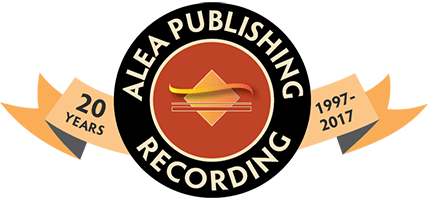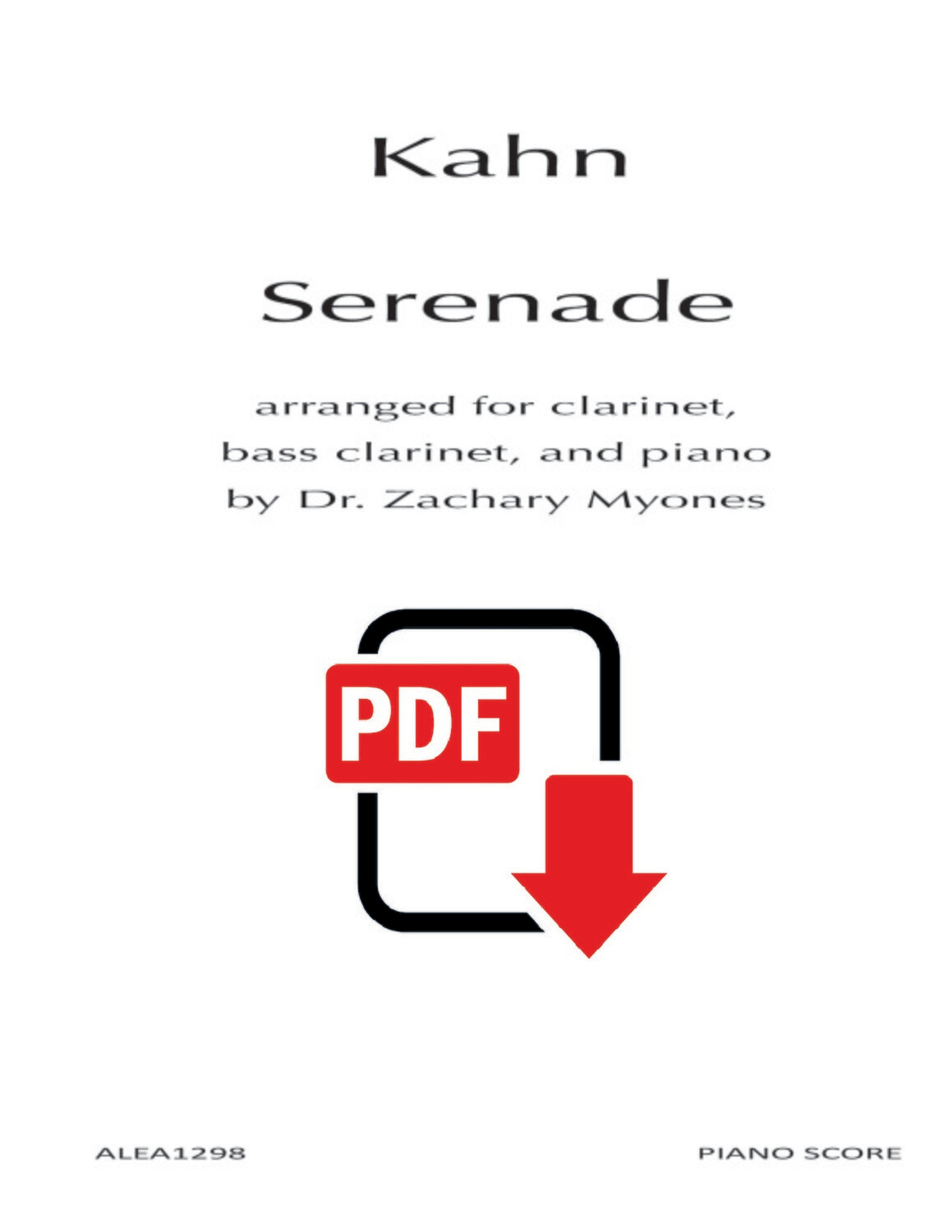

Welcome!
This site is home to Alea Publishing & Recording, specializing in music for the bass clarinet.
We offer a growing catalog of creative, artistic transcriptions and new works for bass clarinet solo & ensemble.
Kahn: Serenade (PDF)
About the Music
Robert Kahn’s Serenade in F minor Op. 73 is perhaps his most well-known composition today. Originally conceived as a trio for oboe, French horn, and piano, Kahn’s publisher suggested that he make it available for more instruments. Although the publisher requested making it available for a typical piano trio consisting of violin, viola, and cello, Kahn reworked the piece for multiple instruments. Published in 1923 through Simrock in Berlin, Kahn’s edition of this piece includes versions of the upper part and lower part for several different instruments while the piano part remains consistent through all versions. In the publication, Kahn lists all of the possible combinations of instruments. The upper part may be played by violin, viola, clarinet, or oboe, while the lower part is written for French horn, viola, and cello. This results in a total of twelve possible ensemble configurations.
Because of the unique publication history of the piece, it lends itself well to being further transcribed for additional instrumentations. This transcription of the lower part for the bass clarinet transposes the written part to g minor in order to maintain the original sounding key and range of Kahn’s composition. This enables the bass clarinet to play as the lower voice with any of the existing upper parts. This score is written for the instrumentation of clarinet with bass clarinet with additional parts available to create any of the possible combinations. This transcription does not require an extended-range instrument.
PDF Edition
Purchasing this item will give you access to download the music as a PDF. If you would prefer to purchase a hard copy, please click here.
About the Composer
Robert Kahn, a German composer, was born in Mannheim, Germany, on July 21, 1865, and died in Kent, England, on May 29, 1951. He studied at the Berlin Musikhochschule (Berlin Conservatory) and the Munich Akademie der Tonkunst (University of Music and Performing Arts Munich) and later ended up teaching piano and music theory at the Berlin Conservatory from 1894 until 1930. Among his pupils was the pianist Arthur Rubenstein. Kahn was forced out of his position in 1934 by the Nazi party because he was Jewish and eventually moved to England in 1937 where he remained until his death in the Village of Biddenden.
A composer of the Romantic period, Kahn’s primary musical influences were Johannes Brahms, Felix Mendelssohn, and Robert Schumann. Kahn was introduced to Brahms by the director of the Berlin Conservatory, Joseph Joachim, and informally learned aspects of composition from him. Kahn frequently utilized counterpoint in his compositions and focused much of his output on chamber music and choral works. Due to suppression of his music by the Nazi Party, few of his works are well-known today.
About the Arranger
Zachary Myones has recently completed his Doctor of Musical Arts Degree in Clarinet Performance at Arizona State University, studying under Bob Spring and Joshua Gardner. He previously completed his Bachelor of Arts Degree in Clarinet Performance and Master’s Degree in Music Education with Teacher Licensure from Case Western Reserve University in 2014, studying clarinet with Daniel Gilbert, voice with Mark Wanich, orchestral saxophone with Greg Banaszak and harpsichord/organ with Peter Bennett. He has also studied under Chester Rowell and Eric Jacobs on bass clarinet and clarinet.
Zach has performed with the Arizona Winds, the Euclid Symphony Orchestra, and various wind ensembles, orchestras, and jazz bands at Arizona State University and Case Western Reserve University. Zach also has experience teaching elementary, middle, and high school band and music theory classes. He teaches clarinet and bass clarinet privately and also collects and copies manuscripts of rare and little known (often unpublished) works for clarinet from library archives around the world for future editing and publishing in order to give these pieces the recognition they deserve.
About Us

Kim Davenport
President
Duo Alea, the father-daughter duo of Michael and Kimberly Davenport, began performing music for bass clarinet and piano in 1996. As performers searching for new repertoire and teachers working with students eager to develop as performers, it quickly became clear that there was a need for more repertoire featuring the bass clarinet. Filling this need became the mission of Alea Publishing & Recording.
Since our first publication in 1997, the Alea catalog has now grown to include over 300 titles. We pride ourselves on the accuracy and quality of our sheet music, as well as our ability to ship directly to customers around the world.
We are proud of the diversity of our catalog in terms of the inclusion of works by composers and arrangers from around the world. We are interested in continuing to expand this diversity, representing musical ideas from around the world.
Following Michael's passing in 2019, Kim has taken over solo management of Alea Publishing. In 2020, Alea established the Dolphy Prize, an annual composition award for new works for bass clarinet by black composers.
Would you like to be informed about additions to our catalog and other news? Join our e-mail list!
